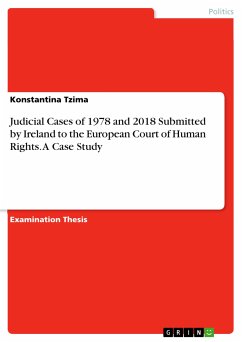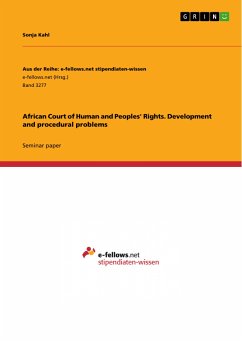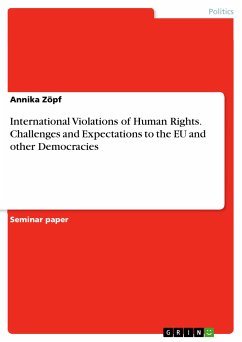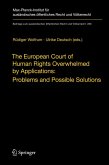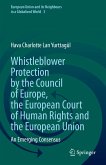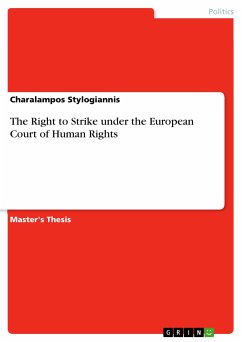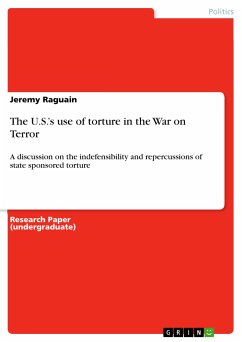Examination Thesis from the year 2022 in the subject Politics - Topic: Public International Law and Human Rights, grade: 10, Panteion University, Athen (International, European and Area Studies), course: International Justice, language: English, abstract: A thorough analysis of the judicial cases of 1978 and 2018 submitted by Ireland to the European Court of Human Rights is being presented. The conflict between the Irish Republican Army and the Royal Ulster Constabulary of the UK caused major social unrest. Gradually Ireland sought independance and the only means to obtain it legally was submitting the case to the Court. To be more specific, the present analysis concerns the effort from the Irish side to make the ECHR classify the acts of violence done to the IRA members from the UK forces as torture. It is a clear breach of the Article 3 of the Convention, however the UK side was well prepared and the judicial struggle was about to continue till 2018. The arguments of both the Applicant and the Defendant State are exposed, as well as the Court's verdict. This case, being a milestone for the Convention itself, is worth studying. For the first time the Court was called to define the term "torture" and adopted the "minimum level of severity" to classify an act as such. Would the Court's decision be different today ? The only sure thing is that the lessons learned from this case should not be forgotten, as they pave the way for better decision-making inside the European Court of Human Rights for the future cases to come.
Dieser Download kann aus rechtlichen Gründen nur mit Rechnungsadresse in A, B, BG, CY, CZ, D, DK, EW, E, FIN, F, GR, HR, H, IRL, I, LT, L, LR, M, NL, PL, P, R, S, SLO, SK ausgeliefert werden.

